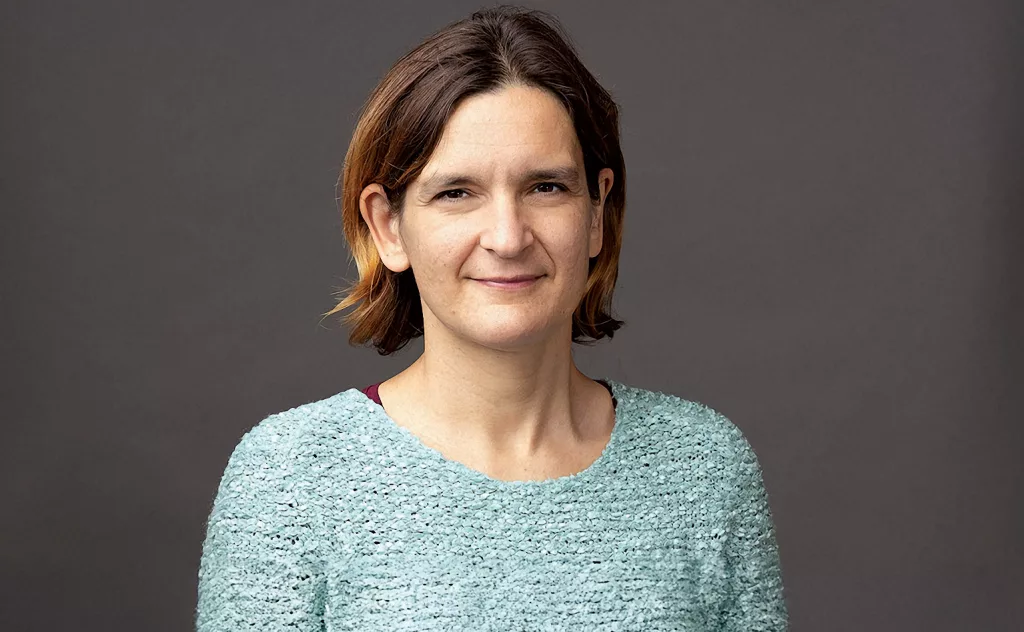Esther Duflo: Reshaping the Fight Against Global Poverty
Esther Duflo’s name is well-known in the field of development economics. Her groundbreaking research and innovative approach to combating global poverty are the reason for her fame.
Born in Paris, France, in 1972, Duflo’s intellectual journey was shaped by her upbringing and life experiences. She was catapulted to the forefront of her field, breaking down barriers and gaining global recognition.
Duflo’s mother was a paediatrician who worked in humanitarian causes, and her father a maths professor. They instilled in her a strong sense of social responsibility and an appreciation for analytical rigour.
Duflo initially considered a career in history and public affairs, but after a 10-month stint teaching French in Russia, she saw at first-hand the effects of economic upheaval on people’s lives. This sparked an interest in economics, and she devoted her working life to understanding the causes of world poverty.

Duflo returned to France and followed her academic goals, earning a Master’s degree from the Paris School of Economics before heading to the US for PhD studies at the famed Massachusetts Institute of Technology. There, she crossed paths with economists Abhijit Banerjee and Michael Kremer, who would become long-term working partners (and, in the case of Banerjee, her husband).
Duflo’s work stands out for her pioneering use of randomised controlled trials (RCTs) in development economics. Inspired by the rigour of medical research, she advocated using this methodology to evaluate the real-world impact of social and economic reforms.
The underlying premise is straightforward, but effective. By organising research studies with randomly assigned treatment- and control groups, researchers could isolate the unique effects of a certain policy or programme, cutting through the complications that plague observational data.
This novel approach represented a substantial change from standard macro-level analysis in development economics, shifting the emphasis to micro-level actions that could alleviate specific characteristics of poverty. Duflo, Banerjee and Kremer have conducted hundreds of RCTs worldwide as part of their work with the Abdul Latif Jameel Poverty Action Lab (J-PAL), a research institute co-founded by Duflo at MIT in 2003.
Their research provided essential insights into a range of development issues, including education, healthcare, access to finance, and governance.
Duflo’s work is distinguished by her emphasis on the intimate relationship between research and policy. Her commitment to evidence-based solutions has resulted in beneficial co-operation with governments and NGOs all around the world.
Duflo’s contributions have received widespread recognition. In 2019, she received the Nobel Memorial Prize in Economic Sciences (with Banerjee and Kremer). She was the youngest person, and only the second woman, to earn this economics honour. Her work has other accolades, including the Princess of Asturias Award for Social Sciences and the John Bates Clark Medal.
Duflo’s impact can be seen in the way her work has transformed lives. RCTs inspired have guided educational programmes to improve learning outcomes and the distribution of mosquito nets to combat malaria. They have also influenced the design of microfinance initiatives that promote an escape from poverty.
Duflo is a dedicated educator and mentor. She has taught at MIT and the Collège de France, eager to pass on her knowledge and passion.
Her influence reaches beyond academia, and she has been praised for her ability to explain complicated economic concepts to a broad audience. Her best-selling book, Poor Economics: A Radical Rethinking of the Way to Fight Global Poverty, co-written with Abhijit Banerjee, provides an accessible account of their work, dispelling myths and emphasising the importance of evidence-based approaches in addressing development challenges.
Esther Duflo’s legacy is one of unwavering dedication to academic rigour, social effect, and a spirit of innovation in the never-ending fight against poverty.
You may have an interest in also reading…
CBRE – Adapted Retail & Alternative Assets: Rental Trends Adjusting With the Times
Economic growth is driving increased demand for retail and alternative real estate assets, while spare capacity is gradually being eroded,
Financial Stability in the European Union: IMF Assessment
In its first ever European Union-wide assessment of the soundness and stability of the financial sector, the International Monetary Fund
Cyprus on the Mend?
By Delia Velculescu, IMF Mission Chief for Cyprus Speech given at the Economist Conference, Nicosia, November 25, 2013 Much has already
















































































